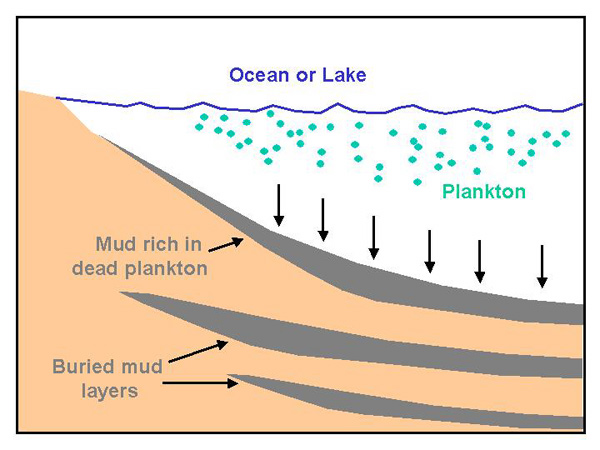Introduction to Oil
Before we get into the "what" of oil, have you ever considered "why" we need oil? Oil and natural gas are an important part of your everyday life. Not only do they give us mobility, they heat and cool our homes and provide electricity. Millions of products are made from oil and gas, including plastics, life-saving medications, clothing, cosmetics, and many other items you may use daily.
In the United States, 97% of the energy that drives the transportation sector (cars, buses, subways, railroads, airplanes, etc.) comes from fuels made from oil. Auto manufacturers are developing cars to run on alternate fuels such as electricity, hydrogen and ethanol. However, the electric batteries need to be charged and the fuel to generate the electricity could be oil or gas. The hydrogen needed for fuel cells may be generated from natural gas or petroleum-based products. Even as alternative fuels are developed, oil will be crucially important to assuring that people can get where they need to be and want to go for the foreseeable future. Barring any increase in the penetration of new technologies, alternative fuels are not expected to become competitive with oil for transportation before 2025.
In areas of the world that are still developing, businesses and individuals are demanding greater mobility for themselves and their products. World vehicle ownership is projected to increase from 122 vehicles per thousand people in 1999 to 144 vehicles per thousand in 2020, with the growth occurring in developing nations. In China, for example, the number of cars has been growing by 20% per year. Airports are being added in these countries as well, expanding jet fuel demand. Oil is expected to remain the primary fuel source for transportation throughout the world for the foreseeable future, and transportation fuels are projected to account for almost 57% of total world oil consumption by 2020.
World population is currently around 6 billion people, but is expected to grow to approximately 7.6 billion by 2020. That will mean a huge increase in the demand for transportation fuels, electricity, and many other consumer products made from oil and natural gas. So let's examine the story of oil and its Africa connection.
What is oil?
Oil and natural gas are products created through natural processes. You may have heard of the formation of "fossil fuels." Fossil fuels can be solid, liquid, or gaseous fuels formed in the ground after millions of years by chemical and physical changes in plant and animal residues under high temperature and pressure. Oil, natural gas, and coal are examples of fossil fuels. But oil formation differs from the formation of the natural resource coal, as coal forms from macroscopic plant material that remains stationary after formation.
How does oil form?
Organic material such as plankton and bacteria decompose. When they begin to decompose, they consume oxygen. In the later stages of decomposition, the plankton are in strongly reducing (or oxygen-free) conditions. This allows for the formation of thick, organic-rich mud. The organic-rich sediments may be trapped in a resevoir rocks where the material is stored, or the liquid material may migrate upwards. The mud can become compacted under layers and layers of rock over geologic time, forming kerogen. Now kerogen is too thick to use directly, so after extraction from below the surface of the Earth, heat is applied to the kerogen to break the hydrogen-carbon bonds.

Oil is a fossil fuel that is formed from plankton that is deposited in the sediments of oceans and lakes, and then buried deeply in the earth. Photo Credit: J.Bratton. Source: NOAA Ocean Explorer.
Profiting from oil
In order to make a profit from oil, there must be a great source of buried hydrocarbons to extract from. A pipeline needs to be built to transport the material from the oil field to a refinery (ideally, the refining capacity should be in the same country). And importantly, the country needs access to a global market where supply-and-demand will keep the economy running.

Oil refinery in South Africa. Source: http://oilafrica.mbendi.com/.